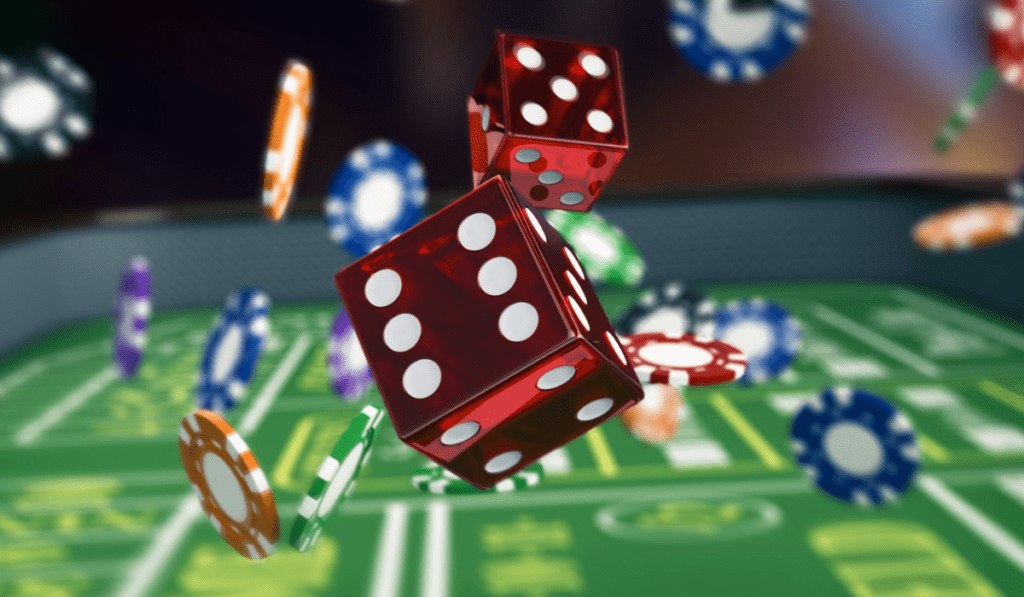
The Psychology of Gambling: Understanding the Thrill and Addiction
Gambling has been a popular form of entertainment for centuries, captivating people’s minds with the possibility of winning big. It has evolved from traditional casino games to online platforms, making it more accessible than ever before. While many individuals enjoy gambling as a recreational activity, for some, it can become a compulsive behavior that leads to addiction. In this article, we will explore the psychology behind gambling, why people engage in it, and how it can become problematic.
What Drives People to Gamble?
The Thrill of the Unknown
One of the primary reasons people are drawn to gambling is the thrill and excitement it provides. The anticipation of not knowing whether you will win or lose creates an adrenaline rush that can be addictive. When you gamble, your brain releases dopamine, a neurotransmitter associated with pleasure and reward. This surge of dopamine makes you feel excited, even if you ultimately end up losing. It is this dopamine release that contributes to the allure of gambling and keeps individuals coming back for more.
Illusion of Control
Another psychological factor that influences gambling behavior is the illusion of control. In many gambling games, such as poker or blackjack, individuals believe that their skills and strategies can influence the outcome. This sense of control gives them a false belief that they can beat the odds and come out on top. The element of skill involved in certain games makes individuals feel like they have an advantage, even when luck plays a significant role.
Near-Misses and Chasing Losses
Near-misses, or situations where individuals come close to winning but fall just short, have a profound impact on gambling behavior. Research has shown that near-misses activate the brain’s reward system in a similar way to actual wins. This creates a sense of excitement and encourages individuals to continue playing in the hopes of experiencing that elusive win. Additionally, individuals may engage in chasing losses, a phenomenon where they try to recoup their losses by continuing to gamble. Chasing losses can be a dangerous spiral that leads to financial and emotional distress.
The Impact of Gambling on the Brain

Gambling stimulates various regions of the brain, triggering a cascade of neurochemical reactions that contribute to its addictive nature. One key area involved in the brain’s response to gambling is the striatum, which is responsible for processing rewards and pleasure. When individuals win during gambling, the striatum releases dopamine, reinforcing the behavior and making it more likely to recur.
However, prolonged and excessive gambling can lead to changes in the brain’s reward system. As individuals continue to engage in gambling, their brains become desensitized to dopamine, requiring higher levels of stimulation to experience the same pleasure. This tolerance can lead to the development of a gambling addiction, where individuals chase bigger wins and take greater risks to achieve the same level of satisfaction.
Factors Contributing to Problem Gambling
While most individuals can gamble responsibly, certain factors can increase the likelihood of developing a gambling problem. These factors can be divided into gambling-specific and general factors.
Gambling-Specific Factors
- Gambling Environment: The availability and accessibility of gambling facilities play a significant role in shaping gambling behavior. The proximity of casinos, the types of gambling offered, and the cultural acceptance of gambling within a community can all influence an individual’s exposure and approach to gambling.
- Gambling Resources: The availability of resources that promote responsible gambling and offer support for individuals with gambling problems can help mitigate the risks associated with gambling. Programs aimed at preventing and addressing gambling-related harm, as well as tools for assessing the risk of gambling products, are essential resources in promoting safer play.
General Factors
- Biological Factors: Some individuals may be genetically predisposed to engage in thrill-seeking behaviors and impulsivity, making them more susceptible to developing a gambling problem. Differences in brain regions involved in decision-making and reward processing may contribute to variations in how individuals perceive and respond to gambling stimuli.
- Cultural Factors: Cultural norms and values can influence an individual’s perception of gambling and what constitutes a problem. In societies where gambling is considered a common pastime, it may be more challenging to recognize and address gambling-related harm.
- Psychological Factors: Psychological disorders, coping styles, social learning, and beliefs can all contribute to the development of a gambling problem. Individuals with mood disorders, such as depression and anxiety, may be more vulnerable to using gambling as a means of escape or self-medication. Harmful beliefs, such as the Gambler’s Fallacy and the Illusion of Control, can also perpetuate problem gambling.
The Road to Recovery: Treatment and Prevention

Recognizing and addressing a gambling problem is crucial for individuals seeking recovery. Various treatment options are available, including both pharmacological and psychological interventions. Cognitive-behavioral therapy (CBT) has shown promising results in helping individuals develop healthier attitudes and behaviors towards gambling. Support groups and counseling services can also provide valuable assistance, allowing individuals to share their experiences and receive guidance from others who have gone through similar struggles.
Prevention is equally important in mitigating the risks associated with gambling. Public health initiatives, such as responsible gambling campaigns, can raise awareness about the potential harms of gambling and provide resources for individuals to make informed decisions. Implementing measures like self-exclusion programs and stricter regulations on gambling advertising can help protect vulnerable individuals from developing gambling problems.
Conclusion
Understanding the psychology behind gambling is crucial in addressing the complex issues associated with it. While gambling can be an enjoyable pastime for many, it can also lead to addiction and significant personal and financial consequences. By recognizing the factors that contribute to problem gambling and implementing effective prevention and treatment strategies, we can promote safer gambling practices and support individuals in their journey towards recovery.
Remember, gambling should always be approached responsibly, and if you or someone you know is struggling with a gambling problem, seek help from professional resources and support networks.
